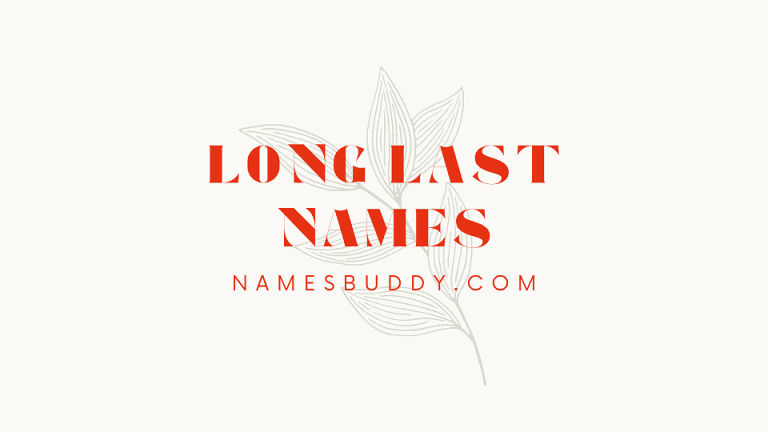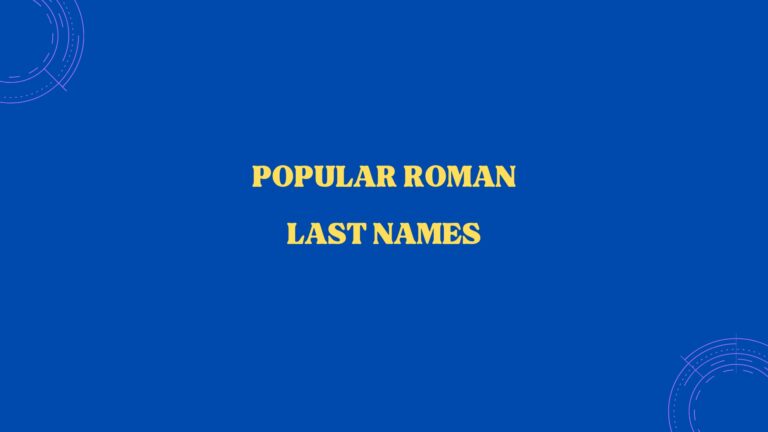100 Popular Korean Last Names
Last names in Korea have a profound historical and cultural significance, often being traced centuries back to the noble lines and ancient clans.
In many Western cultures, surnames can be very different from each other; in Korea, however, only a handful of last names-such as Kim, Lee, and Park-are borne by a large number of people.
However, each last name is further distinguished by a unique ancestral origin called bon-gwan, leading one to particular states or clan histories.
In this article, we’d like to discuss the most common Korean last names, their meanings, and the fascinating myths behind them.
Korean last names
Kim (김, 金) – “Gold” or “Metal”; one of the most common surnames in Korea.
Lee (이/리, 李) – “Plum tree”; another widely used surname.
Park (박, 朴) – “Gourd” or “Simple”; associated with royalty in Silla.
Choi (최, 崔) – “High” or “Lofty”; from an ancient noble lineage.
Jung (정, 鄭/丁/程) – “Upright” or “Proper”; linked to several noble clans.
Kang (강, 姜) – “Ginger”; originally from a powerful Gojoseon family.
Yoon (윤, 尹) – “To govern”; associated with high-ranking officials.
Jang (장, 張) – “To expand” or “To stretch”; a common military-related surname.
Im (임/림, 林) – “Forest”; linked to scholars and officials.
Yoo (유, 柳/庾/兪) – “Willow tree”; found in royal and scholarly lineages.
Shin (신, 申/辛) – “Extend” or “Bitter”; associated with noble families.
Cho (조, 趙) – “Aid” or “Help”; linked to the Goryeo royal family.
Han (한, 韓/漢) – “Korea” or “Chinese Han”; one of the oldest surnames.
Oh (오, 吳) – “Big” or “Grand”; associated with Chinese origins.
Seo (서, 徐/西) – “Slow” or “West”; linked to scholars and officials.
Hwang (황, 黃) – “Yellow”; traced to ancient Chinese nobility.
Ahn (안, 安) – “Peace” or “Safe”; known for its noble ancestry.
Song (송, 宋) – “Song dynasty”; associated with strong military families.
Jeon (전, 全/田) – “Whole” or “Field”; linked to farming traditions.
Hong (홍, 洪) – “Big” or “Flood”; often found in artistic and military families.
Ryu (류/유, 柳) – “Willow tree”; connected to scholarly traditions.
Moon (문, 文) – “Literature”; associated with intellectual families.
Baek (백, 白) – “White” or “Pure”; linked to royalty and scholars.
Nam (남, 南) – “South”; tied to ancient ruling families.
Gu (구, 具/丘) – “Tool” or “Hill”; from influential clans.
Ha (하, 河/夏) – “River” or “Summer”; associated with water-related professions.
Ma (마, 馬) – “Horse”; linked to equestrian and military traditions.
No (노/로, 盧/魯) – “Cottage” or “Simple”; found in royal lineages.
Joo (주, 朱/周) – “Red” or “Surround”; connected to influential clans.
Kwon (권, 權) – “Authority” or “Power”; known for political influence.
Tang (탕, 唐) – “Tang dynasty”; a rarer surname in Korea.
Jin (진, 陳/秦/晉) – “Progress” or “Wealthy”; often tied to royalty.
Sim (심, 沈) – “Deep” or “Sink”; associated with noble families.
Byun (변, 邊/卞) – “Border” or “Change”; linked to military and border officials.
Ham (함, 咸) – “All” or “Together”; associated with unity.
Eom (엄, 嚴) – “Strict” or “Serious”; connected to scholarly traditions.
Yang (양, 梁/楊) – “Bridge” or “Poplar tree”; found in ancient noble families.
Bae (배, 裵/倍) – “Double” or “Gourd”; associated with trade and farming.
Seok (석, 石) – “Stone”; linked to stability and endurance.
Bo (보, 普/寶) – “Universal” or “Treasure”; a rare but meaningful surname.
Wi (위, 魏) – “Great” or “Majestic”; from a powerful Chinese kingdom.
Hyeon (현, 玄) – “Mysterious” or “Dark”; connected to scholars.
Cheon (천, 千) – “Thousand”; symbolizing prosperity.
Do (도, 都/道) – “Capital” or “Way”; linked to leadership and governance.
Jeong (정, 丁/鄭/程) – “Govern” or “Settle”; associated with scholars.
Min (민, 閔/敏) – “Quick-witted” or “Clever”; a common noble surname.
Gong (공, 孔/公) – “Public” or “Confucius”; linked to Confucian scholars.
Sa (사, 司/史) – “History” or “Control”; associated with record-keepers.
Yeom (염, 廉) – “Honest” or “Frugal”; linked to upright officials.
Tak (탁, 卓) – “Outstanding” or “Tall”; associated with distinction.
Eun (은, 殷/恩) – “Silver” or “Grace”; linked to nobility.
Jang (장, 蔣/張) – “Expand” or “Sturdy”; associated with military officials.
Cha (차, 車/遮) – “Cart” or “Vehicle”; related to warriors and transportation.
Hye (혜, 惠) – “Kindness” or “Wisdom”; found in scholarly lineages.
Byeon (변, 卞/邊) – “Change” or “Border”; tied to frontier defense officials.
Seong (성, 成/星/聖) – “Accomplish” or “Star”; linked to influential scholars.
Chae (채, 蔡) – “Vegetable” or “Wealth”; associated with agricultural prosperity.
Man (만, 萬) – “Ten thousand” or “Abundant”; symbolizing great fortune.
Do (도, 都/道) – “Way” or “Metropolis”; connected to governance and philosophy.
Yeon (연, 延/燕) – “Extend” or “Swallow (bird)”; linked to diplomatic families.
Ju (주, 朱/周) – “Red” or “Surround”; associated with ancient rulers.
Hahm (함, 咸) – “Together” or “All-encompassing”; symbolizing unity.
Yang (양, 楊/梁) – “Poplar tree” or “Bridge”; tied to construction and military.
Maeng (맹, 孟) – “Elder” or “Brave”; connected to Confucian scholars.
Yun (윤, 尹) – “Govern”; a surname with deep aristocratic roots.
Wi (위, 魏) – “Majestic”; linked to historical Chinese dynasties.
Kwak (곽, 郭) – “Enclosed city”; associated with protective city officials.
Ok (옥, 玉) – “Jade”; symbolizing purity and nobility.
Jeon (전, 田/全) – “Field” or “Complete”; linked to agricultural heritage.
Baek (백, 白) – “White” or “Pure”; associated with scholars and monks.
Seon (선, 宣/善) – “Declare” or “Good”; linked to officials and educators.
Hah (하, 河) – “River”; tied to water-based professions.
Sim (심, 沈) – “Deep” or “Serious”; connected to governance.
Eo (어, 魚) – “Fish”; symbolizing abundance and prosperity.
No (노, 盧) – “Cottage” or “Humble”; often tied to scholars.
Chun (천, 千) – “Thousand”; representing longevity and wealth.
Heo (허, 許) – “Permit” or “Approve”; linked to noble lineage.
Mun (문, 文) – “Literature” or “Culture”; associated with scholars.
Namgoong (남궁, 南宮) – “Southern Palace”; a rare and prestigious surname.
Bang (방, 方) – “Square” or “Direction”; linked to mathematicians and strategists.
Joo (주, 朱) – “Red” or “Surround”; connected to imperial families.
Kang (강, 康) – “Health” or “Peace”; a surname of long-standing noble families.
Jeong (정, 丁/鄭/程) – “Govern” or “Settle”; associated with royalty.
Sohn (손, 孫) – “Grandchild” or “Descendant”; symbolizing family lineage.
Jeon (전, 田/全) – “Field” or “Complete”; rooted in farming history.
Seok (석, 石) – “Stone”; representing strength and stability.
Geum (금, 金) – “Gold”; tied to prosperity and wealth.
Dokgo (독고, 獨孤) – “Solitary and Alone”; a rare and prestigious surname.
Gook (국, 國) – “Nation” or “Country”; linked to royal families.
Gyeon (견, 甄) – “To refine” or “Pottery”; linked to craftsmanship.
Bong (봉, 鳳) – “Phoenix”; symbolizing rebirth and power.
Hwan (환, 桓) – “Strong” or “Bright”; tied to ancient warriors.
Sa (사, 司/史) – “History” or “Control”; often linked to government officials.
Mok (목, 睦) – “Harmonious” or “Wood”; connected to nature and peace.
Cheong (청, 靑) – “Blue” or “Green”; symbolizing youth and purity.
Paeng (팽, 彭) – “Booming” or “Expand”; associated with growth and power.
Mo (모, 毛) – “Hair” or “Feather”; linked to nature-based traditions.
Bok (복, 卜/福) – “Divination” or “Blessing”; symbolizing good fortune.
Ryoo (류, 柳) – “Willow tree”; often found in scholarly lineages.
Tae (태, 太) – “Great” or “Big”; connected to powerful ancient families.







